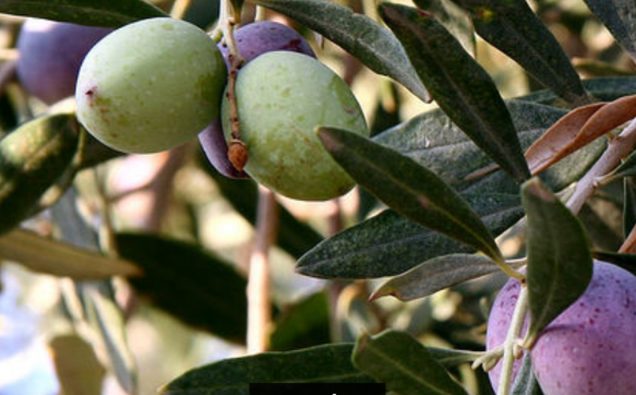
Olive growing is no more a waste of time for Yousaf Shah in Pakistan’s north-eastern district of Chakwal as he is getting reasonable return from cultivation of the greenish black fruit this year.
But Shah’s success story has only been possible three decades after plans and experimentation to grow olives began in the country – a rather slow progress which nonetheless holds immense promise.
Mainly, it’s been due to the establishment of first ever oil extraction mill in this part of the world which will serve as common facility center for the growers.
The mill has a capacity to crush 2000 kilograms of the fruit into virgin and even extra virgin oil every day.
Pakistan’s Punjab province government has fixed a procurement price of Rs 100 (about one dollar) per kilogram for olive fruit produce.
“We are very happy now as there is somebody to buy our produce; We can also get the produce crushed at the oil extraction plant,” says Yousaf Shah.
Shah is one of the pioneers of the olive crop growth in Pakistan’s Pothohar region, selected by the government to convert it into country’s first Olive Valley.
Under the Olive Valley project, groves are being developed over 200,000 acres of barren and uneven land in the Pothohar region alone.”Over the last one and half years, we have able to help farmers grow olive plants over 5000 acres,” says Dr. Muhammad Ramzan, a horticulture expert.
He believes that only in the Punjab province, there are 20 million acres of such a wasteland that could be used for cultivation of olive trees.
The per acre initial cost of olive cultivation is not more than Rs 50000 (US $ 500) but the grower can earn Rs 100,000 to Rs 150,000 (US $ 1000 to US $ 1500) annually.
The olive tree starts giving fruit at the age of 3 years and gives produce for at least 100 years at the optimum level. The tree has a life of 900 years.
The cultivation of olive tree was experimented some 30 years ago jointly by Pakistan Agriculture Research Center , Pakistan Oilseed Development Board and Barani Agriculture Research Institute (BARI). Some 69 olive varieties have successfully been planted in Pakistan.
The local research institute has developed two varieties—Bari Zaitoon I and Bari Zaitoon II. These varieties can be sown in Southern Punjab, Balochistan and Kashmir in addition to Potowar region.
In addition to oil, pickle, jam, jelly, biscuit and hot drinks can be developed from olive fruit.
“The production of olive oil in Pakistan can help bring down the edible oil import bill significantly that presently stands at US $ 2 billion,” says Muhammad Imran, Manager of Olive Oil Extraction Mill.
Agriculturalists say local production of olive oil may help make the oil available to Pakistanis at Rs 1000 (ten dollars) as compared to Rs 2000 (20 dollars) of the imported commodity.





![By David Monniaux (Own work) [GFDL (http://www.gnu.org/copyleft/fdl.html), CC-BY-SA-3.0 (http://creativecommons.org/licenses/by-sa/3.0/) or CC BY-SA 2.0 fr (http://creativecommons.org/licenses/by-sa/2.0/fr/deed.en)], via Wikimedia Commons](https://www.viewsnews.net/wp-content/uploads/2017/02/Olives_au_marche_de_Toulon_p1040238-1024x768.jpg)












